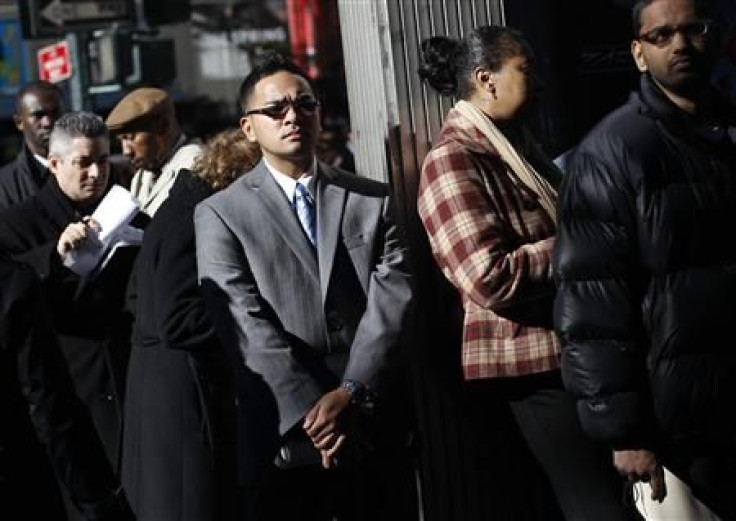Unemployment rate drops to 9.4 pct, payroll rises by 103k

The U.S. unemployment rate dropped to 9.4 percent for December 2010 versus the 9.8 percent recorded in the previous month, reported the Bureau of Labor Statistics (BLS).
Overall payroll gains amounted to 103,000, up from the revised gain of 71,000 for the previous month. The government payroll decreased by 10,000, so private payroll gain was 113,000.
Economists polled by Reuters expected overall payroll to rise by 150,000, private payroll to gain 162,000, and the unemployment rate to drop to 9.7 percent.
December's payroll report was dramatically improved from November's report, for which the unemployment rate rose to 9.8 percent and the first estimate of the overall payroll gain was only 39,000. Both figures were much worse than what economists had initially expected.
For both the November and December jobs reports, expectations and sentiment were boosted by the ADP jobs reports released two days prior.
The ADP report (which does not include changes in government payroll) that's released two days before the December jobs report, for example, blew past expectations by reporting private payroll gain of 297,000, which was about three times more than the ADP gains in November and three times the consensus estimate.
Futures on U.S. stock indices fell after the release of the December jobs report, likely because the payroll gain was about 50,000 shy of the consensus estimate.
Douglas Borthwick, a managing director at Connecticut-based Faros Trading, said the change in nonfarm payroll remains disappointing and the drop in the unemployment rate to 9.4 percent reflects the decline in the labor force participation rate, which fell to 64.3 percent, the lowest in more than 26 years.
The unemployment rate did not drop because people found jobs. It has dropped because the labor force is dropping out and giving up the search [for work]. This is very negative for consumer confidence and the economy in general, said Borthwick.
© Copyright IBTimes 2024. All rights reserved.











